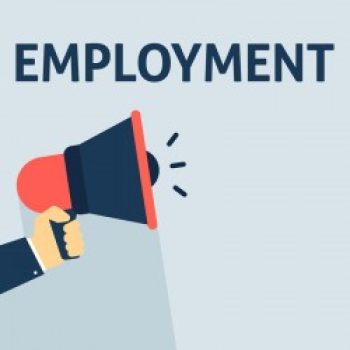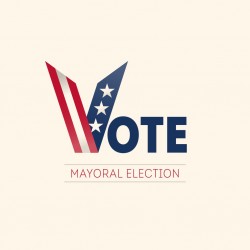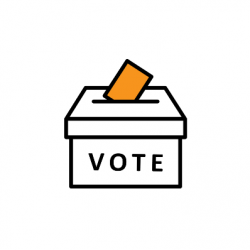The New Year typically invites personal reflection on what we’ve accomplished last year and what we resolve to improve in the coming year. But resolutions are often overly ambitious wishes that end up being unrealized. I propose that in lieu of grand goals that are unrealizable, here are some smaller and measurable goals that every New York nonprofit employer should consider for 2019.
- Schedule Mandated Annual Trainings; Keep Postings Current
Effective April 1, 2019, NYC employers with 15 or more employees (including independent contractors) have until December 31, 2019 to implement sexual harassment prevention training for all employees and then must conduct such training annually. NYC Commission on Human Rights has recently updated its FAQ, clarifying the deadline and other guidance on the law as well as training materials. Training should be provided to employees in their primary language (though not legally required).
For New York employers outside NYC or those with fewer than 15 employees in NYC, the deadline to complete sexual harassment prevention training for all employees that meets New York State’s standards is October 9, 2019. Schedule your training now!
As of January 2019, employers that are State contractors must now submit an affirmation to New York State in connection with bids for such contracts that they have a sexual harassment policy and provide annual sexual harassment prevention training .
Both the State and the City have enacted new laws last year that require posting in a visible location in the workplace, including sexual harassment prevention postings. Make sure your postings are current.
- Update Employee Handbooks
There have been a spate of recent federal, State and New York City legal developments and so it’s a good idea to review your employee handbook and make necessary updates. Here are a few:
Employee Legal Protections under NYC and NYS Human Rights Laws
On January 20, 2019, the NYC Council passed a bill amending the NYC Human Rights Law to prohibit workplace discrimination by a covered employer against an employee for “sexual and reproductive health decisions.” These are defined as “any decision by an individual to receive services, which are arranged for or offered or provided to individuals relating to sexual and reproductive health, including the reproductive system and its functions. Such services include, but are not limited to, fertility-related medical procedures, sexually transmitted disease prevention, testing, and treatment, and family planning services and counseling, such as birth control drugs and supplies, emergency contraception, sterilization procedures, pregnancy testing, and abortion.” The law takes effect on May 20, 2019.
In January, New York State enacted Gender Expression Non-Discrimination Act (GENDA), amending New York State’s Human Rights Law to explicitly prohibit workplace discrimination based on gender identity and expression.
Lactation Accommodation (eff. March 18, 2019)
NYC employers with 4 or more employees must provide a “lactation room” unless doing so would pose an undue hardship to the employer and must implement a written lactation accommodation policy meeting certain requirements and provided to employees upon hire. The lactation “room” must be a clean space, other than a bathroom, to express breast milk; it must be shielded from view and free from intrusion and have an electrical outlet, a chair, and a surface for a breast pump and personal items. The space must have access to running water and be in “reasonable proximity to” the employee’s work area. There also must be a refrigerator suitable for breast milk storage “in reasonable proximity to” the employee’s work area.
NY Paid Family Leave (PFL)
New York Paid Family Leave may be used to bond with a new child, care for a family member with a serious health condition, or assist loved ones when a family member is deployed abroad on active military service. In 2019, eligible employees are entitled to 10 weeks’ PFL at 55% of their average weekly wage, up to a cap of 55% of the current Statewide Average Weekly Wage of $1,357.11. The maximum weekly benefit for 2019 is $746.41. Also, effective February 3, 2019, PFL may be used to care for a family member who is preparing for and recovering from surgery related to organ or tissue donation.
Amended Rules for NYC Earned Safe/Sick Time Act (ESSTA)
In 2018, the NYC Department of Consumer Affairs Office of Labor Policy and Standards issued amended rules regarding ESSTA and updated its FAQ.
The updates include, but are not limited to, that covered NYC employers must distribute a written policy (“in a single writing”) addressing paid sick leave to all new hires, within 14 days of the effective date of any changes to the policy, and/or upon employee request and that the policy must also include a description of the confidentiality requirements of Section 20-921 of New York City’s Administrative Code. https://www1.nyc.gov/assets/dca/downloads/pdf/about/Paid-Sick-Leave-Law-Rules.pdf . It also updates and expands upon certain definitions. Read more about the law in my earlier blog post. https://www.perlmanandperlman.com/nycs-earned-safe-and-sick-time-effective-may-5/
Temporary Schedule Changes
NYC’s Administrative Code was amended last year to required covered NYC employers to provide eligible employees with the opportunity to make temporary schedule changes for specified “personal events,” under certain conditions. Read more.
- Ensure Workers are Properly Paid
Eff. 12/31/18: NY State Minimum Wage increased to $15/hour for New York City employers with 11 or more employees; $13.50/hour for NYC employers with 10 or fewer employees; $12/hr. for Long Island and Westchester employers; and $11.10/hr. for employers in other parts of New York State. Effective 12/31/19, minimum wage increases to $15/hr. for all NYC employers. Salary thresholds for executive and administrative exemptions to overtime pay requirements also increased to $1,125/week ($58,500 annually) for NYC employers with 11 or more employees, and to $1,012.50/week ($52,650 annually) for NYC employers with fewer than 11 employees.
Review Worker Classifications and Job Descriptions.
Job responsibilities change over time and the job descriptions should keep up with those changes to ensure workers are properly classified as exempt or nonexempt from overtime pay laws, to clarify the essential functions of the job (in the event you need to provide that job description to the health care provider of an employee seeking reasonable accommodation for a disability), and to ensure performance evaluations are aligned with expectations set out in the job description. Review those worker classifications as well to make sure they are still accurate based on salary threshold (where applicable) and the job duties.
- Know Your Obligations for Employees On Leave Or Out Sick And Know How To Handle Requests for Reasonable Accommodation
Whether your employee is out on disability, FMLA, NY Paid Family Leave, paid safe/sick (in NYC), short-term disability, worker’s compensation, or military leave, refresh your understanding of your legal obligations.
Refresh training of supervisors on legal obligations where an employee asks for a reasonable accommodation for a disability, pregnancy, childbirth or related medical condition, domestic violence victim status, lactation, sincerely held religious belief, or other legally protected category. Train your managers how to handle employee requests for reasonable accommodation, and how to engage in a “cooperative dialogue” now required under NYC’s Human Rights Law. Read more.
- Review Personnel Files
New York has so many notice and record-keeping requirements that it’s sometimes hard to keep up. It’s a good idea to review your personnel files annually to ensure you have all current notices and records, particularly those that you’re required to provide upon hire.
Last but not least, consult with your labor and employment counsel to head off any potential legal problems and ensure it is smooth sailing for 2019!
Our employment law department conducts workplace trainings, audits of your employment/personnel practices, and updates policies and employee handbooks. Please contact Lisa Brauner, Head of Perlman & Perlman LLP’s Employment Law Practice, at: lisa@perlmanandperlman.com or 212-889-0575 if you have any questions.
-
Perlman & Perlmanhttps://www.staging-perlmanandperlman.com/author/nancyisrael/
-
Perlman & Perlmanhttps://www.staging-perlmanandperlman.com/author/nancyisrael/
-
Perlman & Perlmanhttps://www.staging-perlmanandperlman.com/author/nancyisrael/
-
Perlman & Perlmanhttps://www.staging-perlmanandperlman.com/author/nancyisrael/











